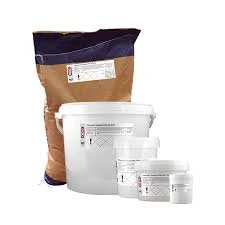
preservative for food products
The Role of Preservatives in Food Products
Preservatives have long been a crucial aspect of food production and preservation, playing a vital role in extending the shelf life of various food products. As consumers become increasingly health-conscious and aware of the ingredients in their foods, the debate surrounding the safety, efficacy, and necessity of preservatives has gained momentum. This article explores the types of preservatives, their benefits and drawbacks, and emerging alternatives in the modern food industry.
Understanding Preservatives
Preservatives are substances added to food products to prevent spoilage due to microbial growth, oxidation, and other chemical changes. There are two primary categories of preservatives natural and synthetic. Natural preservatives, such as salt, vinegar, and certain spices, have been used for centuries. On the other hand, synthetic preservatives, such as sodium benzoate and potassium sorbate, are more common in processed foods and have been developed to provide enhanced protection against spoilage.
Benefits of Preservatives
1. Extended Shelf Life One of the most significant advantages of using preservatives is the extended shelf life they provide to perishable foods. By inhibiting the growth of bacteria, molds, and yeasts, preservatives ensure that food remains safe and palatable for longer periods. This is especially important in a globalized food market where products may be shipped over long distances.
2. Prevention of Foodborne Illnesses Preservatives play a vital role in reducing the risk of foodborne illnesses caused by pathogens such as Salmonella and E. coli. By controlling microbial growth, preservatives help protect consumers from potentially harmful contaminants.
3. Cost-Effectiveness For food manufacturers, preservatives can lead to significant cost savings. By reducing spoilage and waste, companies can minimize losses, resulting in more affordable products for consumers. This efficiency is particularly beneficial in the mass production of food items.
4. Consistent Quality Preservatives help maintain the taste, color, and nutritional value of food products over time. This is essential in ensuring that consumers receive consistent quality in their food purchases, enhancing overall satisfaction.
Drawbacks of Preservatives
preservative for food products

Despite their benefits, preservatives have faced criticism. Concerns regarding the safety of synthetic preservatives have led to heightened scrutiny by consumers and regulatory bodies. Some potential drawbacks include
1. Health Concerns Certain synthetic preservatives have been linked to health issues, including allergies, hyperactivity in children, and potentially even cancer. This has led to a demand for cleaner labels and more transparency from food manufacturers about what is in their products.
2. Natural Alternatives As consumers seek healthier options, there is a growing demand for natural preservatives. These alternatives, such as ascorbic acid (Vitamin C), rosemary extract, and particular essential oils, can offer similar protective benefits without the negative connotations associated with synthetic additives.
3. Evolving Regulations The regulatory landscape surrounding food preservatives can be complex and ever-changing. As new research emerges, some preservatives may face bans or restrictions, forcing manufacturers to adapt their formulations and potentially raising costs.
Emerging Alternatives
In light of these drawbacks, the food industry is exploring innovative alternatives to traditional preservatives. One approach is the use of natural fermentation processes, which not only preserves food but can also enhance flavor and nutritional value. Additionally, techniques such as high-pressure processing (HPP) and modified atmosphere packaging (MAP) have shown promise in extending shelf life without the need for added chemicals.
Furthermore, developments in biotechnology have led to the emergence of bio-preservatives, which utilize natural antimicrobial compounds derived from bacteria or fungi. These options are gaining traction as a means to satisfy consumer demands for health-conscious and sustainable food options.
Conclusion
Preservatives are an integral part of the modern food supply chain, offering significant benefits in terms of shelf life, safety, and cost-effectiveness. However, as consumer preferences evolve, there is increasing pressure on food manufacturers to reformulate their products to meet demands for healthier and more transparent options. By exploring natural alternatives and innovative preservation methods, the food industry can continue to ensure food safety and quality while aligning with consumer values in an ever-changing marketplace. The dialogue around preservatives will undoubtedly continue, shaping the future of food products and consumer choices.
-
Pure Sodium Dichloroisocyanurate Dihydrate | Powerful DisinfectantNewsAug.29,2025
-
Industrial Chemicals: Quality & Purity for Every IndustryNewsAug.28,2025
-
Nitrile Rubber Honoring Strict Production StandardsNewsAug.22,2025
-
Aspartame Ingredients Honoring Food Safety ValuesNewsAug.22,2025
-
Fertilizer for Balanced Plant NutritionNewsAug.22,2025
-
Cyanide Gold Processing with High Purity AdditivesNewsAug.22,2025
-
Formic Acid in Textile Dyeing ApplicationsNewsAug.22,2025
Hebei Tenger Chemical Technology Co., Ltd. focuses on the chemical industry and is committed to the export service of chemical raw materials.
-

view more DiethanolisopropanolamineIn the ever-growing field of chemical solutions, diethanolisopropanolamine (DEIPA) stands out as a versatile and important compound. Due to its unique chemical structure and properties, DEIPA is of interest to various industries including construction, personal care, and agriculture. -

view more TriisopropanolamineTriisopropanolamine (TIPA) alkanol amine substance, is a kind of alcohol amine compound with amino and alcohol hydroxyl, and because of its molecules contains both amino and hydroxyl. -

view more Tetramethyl Thiuram DisulfideTetramethyl thiuram disulfide, also known as TMTD, is a white to light-yellow powder with a distinct sulfur-like odor. It is soluble in organic solvents such as benzene, acetone, and ethyl acetate, making it highly versatile for use in different formulations. TMTD is known for its excellent vulcanization acceleration properties, which makes it a key ingredient in the production of rubber products. Additionally, it acts as an effective fungicide and bactericide, making it valuable in agricultural applications. Its high purity and stability ensure consistent performance, making it a preferred choice for manufacturers across various industries.





